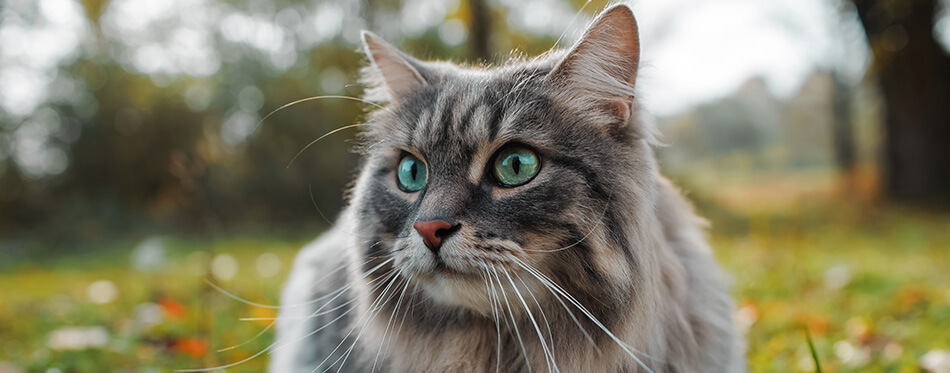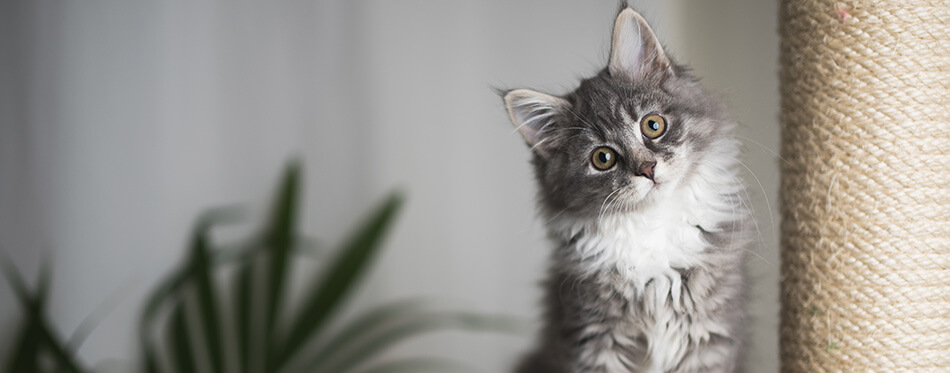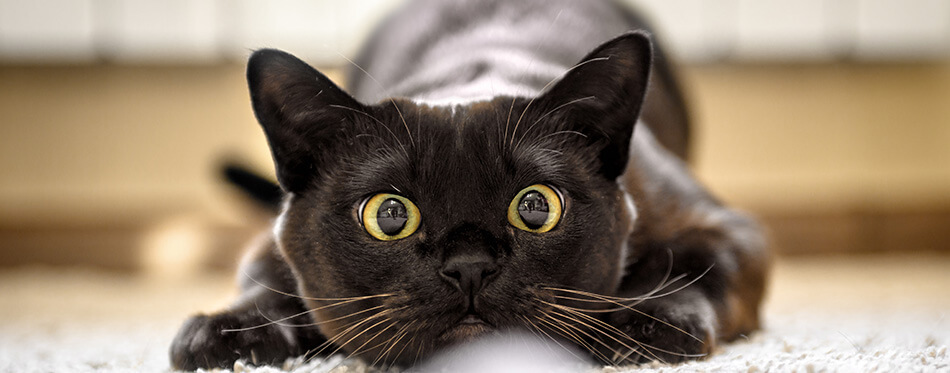Constipation is as common in cats as it is in humans and dogs and it’s important to know that this can become a problem if left untreated. Constipation for cats, especially long-term constipation, is uncomfortable and could even be painful so knowing what to look for and how to treat it can save your feline friend from potential health issues later on.
What is Constipation in Cats?
Constipation is the difficulty to expel bowel movements due to the accumulation of feces in the large intestine. The feces are still developing however they are retained in the colon and not released. The colon is responsible for water absorption and due to the blockage, the feces become hard and dry making it very difficult for cats to drive them out.

How to Tell if Your Cat is Constipated
It’s not necessary to spend every minute watching the litter box but it is necessary that you monitor bowel movements to find any signs that they could be constipated. It can be fairly obvious that they may be struggling as there are many symptoms to indicate this however bare in mind that a cat’s bowel movements may differ from humans.
How Often Should my Cat Poop?
It is normal for your cat to poop once a day but generally, most cats poop every 24-36 hours. So if you haven’t seen them go in a day, give them a little more time to do their business.
How Long Can a Cat Go Without Pooping?
A cat can go over a day without needing to poop, even two days. Although, a cat shouldn’t go 48-72 hours or more without a bowel movement as this could indicate serious health problems. If you observe them closely, and it appears that they are struggling, or not going at all, it is vital to get a professional’s opinion.
Symptoms of a Constipated Cat
There are a few signs which suggest constipation in cats. Some symptoms can be obvious although other symptoms such as limited and dry feces or loss of appetite, can occasionally go unnoticed or be put down to other matters. Below are the two most obvious and common signs of constipation which can often be observed from the onset of the condition.
Dry, Hard Stools
This is the most common way of identifying constipation in your cat. If your feline friend can still produce firm feces during constipation it will have clear signs that there is a problem in your cat’s colon. Normal fecal material will appear a rich brown color and the moisture will cause the litter to stick and clump to it. An unhealthy, constipated stool will be hard, dry, and dark and can sometimes be found on the outside of the litter box.
Crying or Straining
Constipated cats will often vocalize their discomfort in or around their litter boxes. They may also show excessive straining when trying to go but release no movements at all. In addition to this, their behavior may also be abnormal when around their litter box, for example, they may scratch the bottom excessively, get in and out numerous times, or even avoid it altogether.
Outdoor Cats
In cases where you may allow your cat outdoors, it may be difficult to tell if your cat has difficult bowel movements, therefore you may have to look out for the more subtle signs in the list above. If you suspect that your cat is dealing with this condition, keep them indoors and give them access to a litter box so you can monitor them.

What Can Cause Constipation in Cats
Constipation often occurs in middle-aged or mature cats but can happen at any stage in their life. Overweight cats are also more likely to suffer as well as longhaired cats as they are vulnerable to frequent and large hairballs.
Causes of feline constipation can be any of the following:
- A low fiber diet
- Dry food diets
- Anxiety or stress
- Inflammatory bowel disease
- Nerve problems
- Spinal pain and injuries
- Kidney problems
- Tumors
There are many factors that can cause constipation. Some contributing factors can lead to this condition being mild and treatable at home, although it can also be a symptom of an underlying disorder or condition itself. So make sure to talk to a vet so that you can rule out something much more severe and/or get the right treatment for your fur friend.
Other, more serious, conditions and chronic diseases can cause constipation in cats such as diabetes, hyperthyroidism, and kidney disease. If your feline suffers from frequent constipation it may be worth looking into as they could be battling something more serious.
Feline Megacolon
In some instances, it is a symptom associated with Megacolon. This is where the muscles of the colon are significantly weaker and therefore cannot expel feces effectively or at all. Constipated cats will suffer an enlarged colon due to their muscle’s inability to contract and release feces which can result in severe constipation.
How to Help a Constipated Cat
Whether the condition is severe or not always consult your vet first as they will provide medical advice in the boatful when treating constipation. This advice or treatment can range from dietary management, hairball remedies (for extra fluffy cats!), fluid therapy, or medical management.
Home Cat Constipation Remedies
Diet
If their condition is mild then treating your cat’s constipation at home can be simple. If your cat’s diet is the culprit you can switch to high fiber diets or even Hypoallergenic diets to promote normal movement in the bowels. Switching their diet can be tricky and mustn’t be done suddenly. Make sure you swap the food gradually by mixing the new food with small amounts of the old food so that they are more likely to eat it. Take a look at our review of the best cat food for constipation for more info.
Watch Their Weight and Water Intake
Switching your cat’s diet may also help when trying to encourage weight loss to prevent further constipation. A diet change, especially a switch to one that may include canned pumpkin, can help to reduce inflammation in the bowel and will also promote stool consistency.
If kidney disease is the culprit you may need to encourage your cat to drink more. Constipation may require you to treat constipation with laxative drugs causing dehydration in your feline. If they suffer from a chronic illness, you may have to treat them further with fluid therapy.
Minimize Stress
When routines are disrupted or their environment changes (maybe you move home or even get a new dog), cats can become agitated and sometimes anxious. In most cases, cats will often just need time to readjust. Although, if they are showing no signs of settling you can often purchase calming herbs or supplements, and in extreme cases, your vet can prescribe medications.
Additional Litter Boxes
Another thing you can do is add another litter box to your home. Cats can be particular about the placement of their litter box which can factor into constipation however if you include multiple boxes they are more likely to use them.

A Trip to the Vets
In some instances, your vet may advise you to give them lubricating laxatives, stool softeners, or other laxatives to remove the fecal matter faster.
There is the possibility that cats with Megacolon or chronic constipation could not respond to medical treatment and may have to have the affected enlarged intestine removed. In severe cases, it is possible that affected portions of the colon may need surgical removal as they are unable to function anymore. In addition to this, severely affected cats may have to receive enemas or manual removal from a vet. An enema will provide immediate relief which will reduce the discomfort and pain your cat may be in.
Just Remember
Understanding this information and learning about the best methods to prevent constipation in the future can help your cat maintain a healthy stomach. The important thing to take away is that you should not shy away from veterinary support and understand that constipation is treatable in your cat. Not pooping or an inability to pass urine is uncommon but can be a major cause for concern, so always make sure to seek medical advice.

